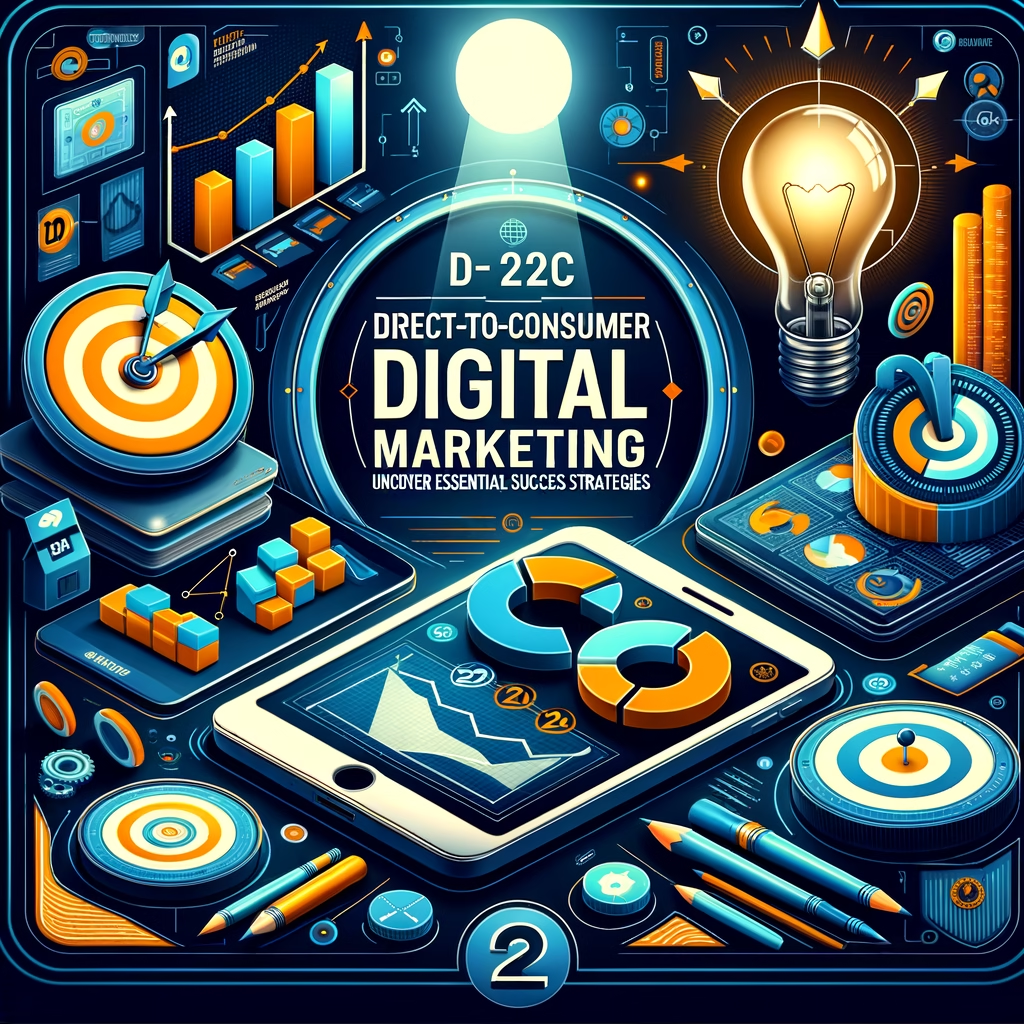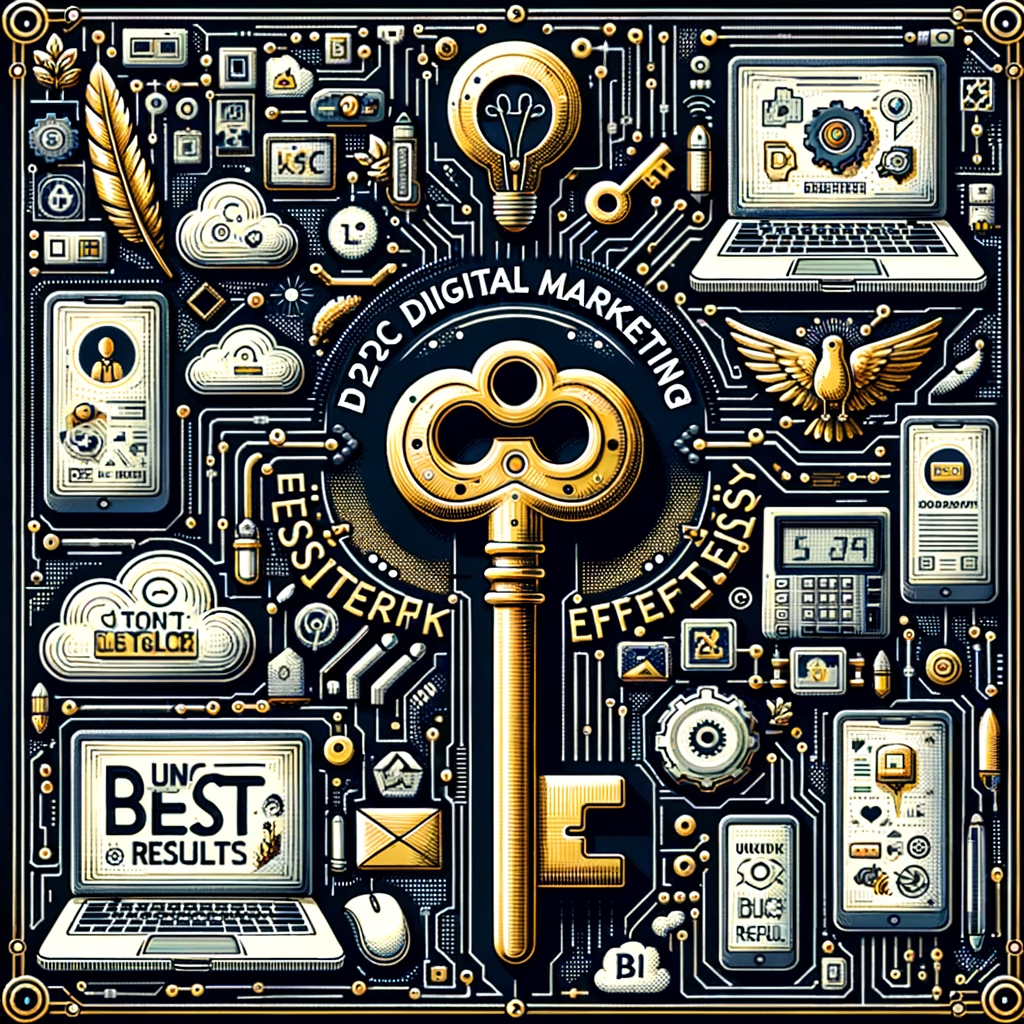- Embrace Account-Based Marketing (ABM)
- Personalized Content and Messaging
- Alignment Between Sales and Marketing
- Leveraging Data-Driven Insights
- Utilizing Analytics Tools
- Predictive Analytics for Lead Scoring
- Optimizing Content for SEO
- Targeting Long-Tail Keywords
- Creating Valuable and Shareable Content
- Employing Marketing Automation Tools
- Nurturing Leads Effectively
- Measuring Campaign Performance
- Engaging Through Social Media
- LinkedIn for Professional Networking
- Utilizing Video Content
- Creating Interactive Experiences
- Interactive Infographics and Quizzes
- Virtual Events and Webinars
- Building Trust and Authority
- Showcasing Customer Testimonials and Case Studies
- Consistent Thought Leadership
- Ensuring an Integrated Multichannel Approach
- Cross-Channel Integration and Consistency
- Conclusion
Strategies for Achieving Effortless Growth in B2B Digital Marketing
As the digital landscape continues to evolve, strategies for achieving effortless growth in B2B digital marketing have become crucial for businesses aiming to thrive in a competitive environment. Whether you’re a seasoned marketing professional or just venturing into B2B, understanding effective strategies can make a significant difference. This article dives into key strategies that can unlock unprecedented growth and success.
Embrace Account-Based Marketing (ABM)
Account-Based Marketing (ABM) is a highly targeted approach that focuses on identifying and engaging specific high-value accounts. Instead of casting a wide net, ABM allows businesses to dedicate resources to prospects most likely to convert, thereby optimizing investment and effort.
Personalized Content and Messaging
One of the core elements of ABM is personalization. Tailoring content and messaging to resonate with individual accounts enhances engagement significantly. By understanding the unique needs and pain points of each target account, marketers can craft solutions that speak directly to them.
Alignment Between Sales and Marketing
For ABM to be effective, alignment between sales and marketing teams is essential. Both departments must collaborate closely to identify target accounts, develop strategies, and measure success. Regular meetings and shared objectives foster a unified approach, ensuring seamless communication and execution.
Leveraging Data-Driven Insights
In the current digital marketing landscape, data-driven insights are invaluable. Businesses that harness the power of data can make informed decisions, leading to improved outcomes and growth.
Utilizing Analytics Tools
Analytics tools provide in-depth insights into customer behavior, preferences, and engagement patterns. Leveraging platforms like Google Analytics, HubSpot, or specialized B2B analytics software helps businesses understand what strategies work and where improvements are needed.
Predictive Analytics for Lead Scoring
Predictive analytics can enhance lead scoring by identifying prospects with the highest conversion potential. By analyzing past interactions, behavioral patterns, and demographic data, companies can prioritize leads more effectively, maximizing both the impact and efficiency of their marketing efforts.
Optimizing Content for SEO
Search Engine Optimization (SEO) remains a cornerstone of digital marketing, influencing visibility and authority. Business-to-business companies must recognize the nuances of optimizing content for B2B audiences.
Targeting Long-Tail Keywords
Focusing on long-tail keywords specific to your industry allows your content to address niche inquiries, thus attracting more qualified traffic. Long-tail keywords often reflect the intent and needs of B2B buyers more accurately than broader terms.
Creating Valuable and Shareable Content
High-quality content that offers unique insights, solutions, or knowledge has a higher chance of being shared among industry professionals. This amplifies your reach and establishes your business as a thought leader within your sector.
Employing Marketing Automation Tools
Marketing automation tools can streamline workflows, nurture leads, and ultimately drive growth. These tools empower B2B marketers to focus on strategy while handling repetitive tasks efficiently.
Nurturing Leads Effectively
Automation platforms allow businesses to set up personalized drip campaigns that nurture leads over time. By delivering relevant content at each stage of the buyer’s journey, marketers can move prospects closer to conversion.
Measuring Campaign Performance
With marketing automation, tracking and evaluating campaign performance becomes more streamlined. Real-time data on email open rates, click-through rates, and conversion statistics provide insights that drive continuous improvement.
Engaging Through Social Media
While traditionally associated with B2C marketing, social media has become a powerful B2B tool for engagement and networking. Understanding the preferences and behaviors of your audience on these platforms is critical.
LinkedIn for Professional Networking
LinkedIn stands out as the premier platform for B2B marketing. Engaging with industry-specific groups, sharing valuable content, and participating in discussions can significantly enhance a company’s presence and authority.
Utilizing Video Content
Video content is becoming increasingly important across social media channels. Platforms like LinkedIn are highlighting video posts in feeds, making it an excellent opportunity for sharing testimonials, case studies, or product demonstrations.
Creating Interactive Experiences
Interactivity is a key differentiator in modern marketing efforts. B2B marketers can leverage interactive content to engage prospects and provide a memorable user experience.
Interactive Infographics and Quizzes
Interactive infographics and quizzes not only convey information in an engaging format but also encourage users to participate, leaving a lasting impression. These tools can be particularly effective in demonstrating expertise and fostering engagement.
Virtual Events and Webinars
Hosting virtual events and webinars allows businesses to present their offerings to a global audience without geographical constraints. These formats offer valuable insights and provide real-time engagement with potential clients.
Building Trust and Authority
Building trust and authority is foundational to consistent growth in B2B. Businesses that position themselves as reliable and knowledgeable partners are more likely to forge long-term relationships.
Showcasing Customer Testimonials and Case Studies
Testimonials and case studies act as social proof, showcasing real-world successes and results. By highlighting how your products or services have positively impacted other businesses, you reinforce trust among potential clients.
Consistent Thought Leadership
Publishing thought leadership content such as white papers, research reports, and in-depth articles helps establish your brand as an industry leader. Regularly sharing innovative insights and future trends fosters credibility and keeps your business at the forefront of industry developments.
Ensuring an Integrated Multichannel Approach
A multichannel approach ensures that businesses reach their prospects at multiple touchpoints. Consistency across all channels is key to providing a coherent and engaging customer experience.
Cross-Channel Integration and Consistency
Ensuring that the messaging and branding are consistent across all platforms reinforces the brand identity and boosts recognition. Synchronizing campaigns across email, social media, and websites creates a unified front that resonates with your audience.
Conclusion
Achieving effortless growth in B2B digital marketing demands a sophisticated approach, integrating modern tools and strategies. From embracing ABM and leveraging data-driven insights to optimizing content and employing automation, each strategy plays a critical role in driving results. By staying updated with evolving trends and focusing on genuine engagement, businesses can uncover untapped potential and soar to new heights.




